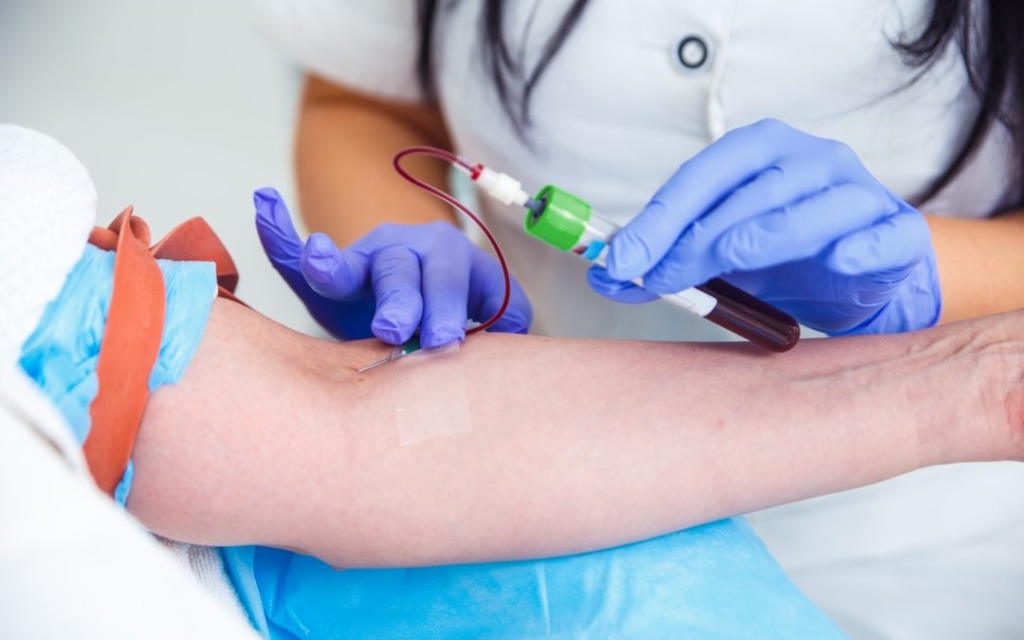Accredited Phlebotomy Certification: Everything You Need to Know
Are you considering a career in phlebotomy? If so, obtaining an accredited phlebotomy certification is essential. This certification not only validates your skills and knowledge in the field but also opens up more job opportunities and can lead to higher earning potential. In this article, we will delve into the world of accredited phlebotomy certification, exploring what it is, why it’s important, and how to obtain it.
What is Accredited Phlebotomy Certification?
Accredited phlebotomy certification is a credential awarded to individuals who have completed the necessary training and examinations to demonstrate their proficiency in drawing blood, handling specimens, and ensuring patient safety. This certification is typically offered by professional organizations like the National Healthcareer Association (NHA), the American Society for Clinical Pathology (ASCP), and the American Medical Technologists (AMT).
Why is Accredited Phlebotomy Certification Important?
There are several reasons why obtaining accredited phlebotomy certification is important:
- Validation of Skills: Certification demonstrates to employers and patients that you have the necessary skills and knowledge to perform phlebotomy procedures accurately and safely.
- Job Opportunities: Many employers require phlebotomists to hold certification, so obtaining accreditation can open up more job opportunities.
- Professional Development: Certification shows your commitment to continuous learning and staying current with best practices in the field.
- Earning Potential: Certified phlebotomists often command higher salaries than those without certification.
How to Obtain Accredited Phlebotomy Certification
Obtaining accredited phlebotomy certification involves several steps:
- Complete an Accredited Phlebotomy Training Program: Enroll in a phlebotomy training program that is accredited by a recognized organization like the NHA or ASCP.
- Gain Hands-On Experience: Complete a clinical internship or externship to gain practical experience drawing blood and handling specimens.
- Pass the Certification Exam: Once you have completed your training program, you will need to pass a certification exam to demonstrate your competency in phlebotomy.
- Maintain Certification: To maintain your certification, you will need to complete continuing education requirements and renew your certification periodically.
Benefits of Accredited Phlebotomy Certification
There are numerous benefits to obtaining accredited phlebotomy certification, including:
- Increased Job Opportunities
- Higher Earning Potential
- Professional Credibility
- Continued Learning and Development
Practical Tips for Obtaining Accredited Phlebotomy Certification
Here are some practical tips to help you successfully obtain accredited phlebotomy certification:
- Research Training Programs: Look for programs that are accredited by reputable organizations and have a high pass rate for certification exams.
- Practice, Practice, Practice: Take every opportunity to practice your phlebotomy skills to build confidence and proficiency.
- Stay Current: Stay up-to-date on the latest trends and best practices in phlebotomy to ensure you are well-prepared for the certification exam.
Conclusion
Accredited phlebotomy certification is a valuable credential that can open up doors to a rewarding career in healthcare. By completing a training program, gaining hands-on experience, passing the certification exam, and maintaining your certification, you can demonstrate your proficiency and commitment to excellence in the field of phlebotomy. Take the first step towards obtaining accredited phlebotomy certification today and embark on a fulfilling career as a certified phlebotomist.
